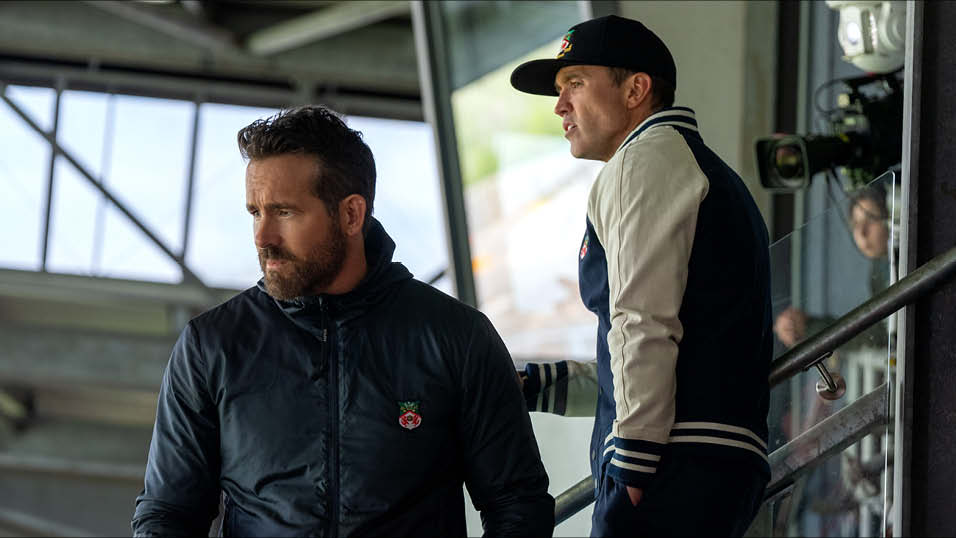There has been a swathe of complaints about the sound quality of British dramas in recent weeks. BBC1’s Jamaica Inn drew 2,200 complaints over inaudibility, with critics rounding on the performance of lead actor Sean Harris. This was followed up a few weeks later with further complaints about Quirke.
TV sound has shot up the production agenda as a result. BBC director of TV Danny Cohen said last month that audibility issues on dramas like Quirke and Jamaica Inn are “a great source of frustration.”
Production experts point to a number of causes. Mumbling by actors is identified as the big issue, particularly by actors taking on regional accents.
Fraser Barber, head of sound recording at the NFTS and a production sound mixer with credits including The Tunnel, House of Saddam and Silent Witness, says Jamaica Inn actor Sean Harris “didn’t deliver a performance that anybody could have recorded in an intelligible way.”
Barber adds that he is surprised that director Philippa Lowthorpe let it pass. “She is one of the best directors I have ever worked with from a sound point of view. She will often ask the sound recordist if he is happy before she will ask the cameraman…so I am absolutely stunned that she decided to make those artistic decision on Jamaica Inn. She obviously thought it was very real. But maybe it was too real.”
LipSync Post md Peter Hamden says producers and directors “should try to balance the quest for authenticity in drama with the needs of the viewer sitting at home in a domestic environment. TV doesn’t have the benefit of a captive audience like cinema. Having said that, nobody wants to return to the days of received pronunciation…”
A bigger budget for voice coaching, and longer preparation time for actors, could help tackle the issue, says Fraser Barber. He says actors who have to adopt different accents often do not have enough voice coach training. “Someone like Meryl Streep would work for months with a voice coach before taking on a character in a film. But on a TV drama they probably get a few hours with a good voice coach. The actors are not confident with their accent, so worry about speaking up.”
Barber says difficulties can also arise because programme makers are so familiar with the script, they don’t realise there is a problem with audibility. He recommends that sound recordists watch rehearsals without the script. “That flags up to me if there is a problem with someone’s diction or if they’re too quiet.”
Barber also worries that budget cuts are putting increasing pressure on sound departments. A good drama requires a production sound mixer, a boom operator, a sound assistant and, ideally, a trainee. He says that the reality now is that the assistant is offered trainee money, which means it is very hard to get the right level of expertise.
Skimping on sound budgets can often prove to be a bad move warns Liam Laminman, md of Trickbox TV. “There’s security and value in having the right people and resources working on a production. There’s always that time when you need to cut a few corners and shave some money off the budget – but sound shouldn’t be the first compromise.”
Sound problems, of course, can be fixed in post – but only to a certain extent. ADR can be used to help sort out unclear dialogue. But, notes, Matt Skilton, senior dubbing mixer at Envy, some actors dislike ADR and it’s often difficult to ADR some scenes convincingly. “If in the mix the ADR is ‘standing out’ and ruining the scene, everyone will reluctantly agree to go back to the original mumbled dialogue for the sake of the whole scene.”
Skilton says it’s also good practice to check a sound mix on a normal TV. After all, it might sound “absolutely fine and all the dialogue as clear as possible when it is monitored in the dubbing theatre on a good sound system with very little or no background noise.”
He adds: “Music at too high or low a level can be a problem and a very subtle mix in the studio can often go unheard on a domestic monitor.”
After all, the sound quality of newer flat screen TVs can be appalling as there is less room for speakers than in the old CRT TVs. On such TVs, a dynamic mix, with large swells in music or effects followed by quiet periods of dialogue, while popular with directors, can be an issue for viewers. Variations in volume are the single biggest cause of viewer complaints, according to the European Broadcasting Union (EBU), which in 2012 published its standard for broadcasters to normalise audio, R128.
This R128 recommendation will be fully adopted in the UK by October, part of the requirements for delivering digital files to broadcasters agreed by the Digital Production Partnership (DPP). All shows will then have the same relative loudness levels.
The Farm’s Nigel Edwards says: “The new broadcast standard of R128 from the DPP will help to alleviate the dynamic range on TV. It will bring up the quiet mixes and bring down the loud mixes.” In effect, it means viewers won’t have to reach for their remote control so often to adjust the volume to deal with variations in sound.
Taking a step back, Barber urges a degree of perspective on the sound issue though. There have been a few glitches recently, he admits. But, he adds: “I don’t think that there are many problems on TV drama. Particularly in the UK, the standard of sound of TV drama is really, really high.”
This article was taken from the July issue of Televisual.
Tim Dams
Share this story

















